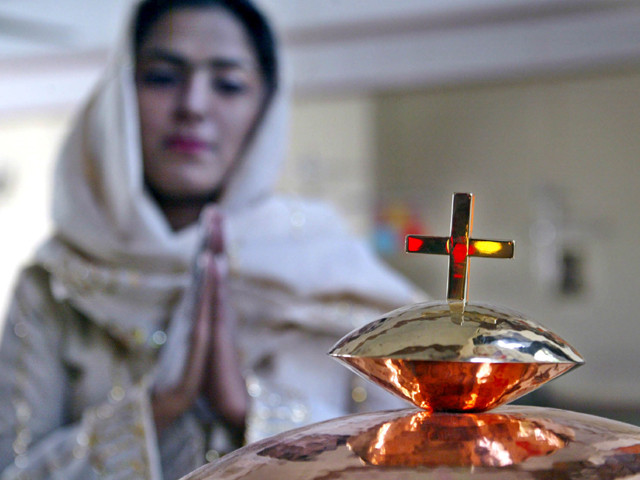100 years on: FATA Christians still without domicile
Due to the FCR and tribal customs, the community cannot own property.

Due to the FCR and tribal customs, the community cannot own property. PHOTO: EPA
“Our forefathers settled in Fata in 1914 after migrating from Sialkot and since then we are here and our many generations have grown up and passed away, but we don’t have the right to purchase even an inch of land and property in the area,” said Arshad Masih, Chairman Christian Community Fata.
Narrating the discriminatory attitude towards the Christian community, whose population in Fata crosses the number of 3,000, Arshad said as the community did not fall in any tribe, it was not issued domicile, which permits a citizen to purchase property in the area.
“Due to not having a domicile, we can neither purchase property nor have a share in the 5% job quota allocated for minorities under the Constitution. In addition, we don’t have any share even in the development funds in the area,” he added.
He said the community had approached all the authorities – including the subsequent governors, chief ministers and officials in Fata secretariat to resolve the issue, but all in vain.
Arshad, however, added that Christians living in Fata were still committed to not leaving the region, but wanted the authorities to resolve the century-old issue.
“With the passage of time our population has increased and our requirements have also expanded and that’s why it is the need of the hour to amend the FCR to pave the way for us to have our own property and businesses,” he noted.
He said it could be resolved in just an hour by bringing an amendment in the Constitution through an Ordinance.
Earlier, the issue was also raised in the Senate by Awami National Party (ANP) Senator Farah Aqil, who suggested amending the Constitution to give the Christians in Fata the right to domicile.
“We should amend the FCR to bring the Christian community in the mainstream of citizenship,” said Farah Aqil.
“This is a tragedy that a minority community is deprived of a fundamental right to have their own property despite being a citizen of Pakistan,” she lamented.
However, the chairman of the standing committee on frontier regions – who is the elected senator from Fata – has another view on the issue. He said Christians came to Fata late and they did not belong to any tribe.
“That’s why under the FCR rule, they are not considered as native citizens of FATA and the rules and tribal customs don’t permit them to have personal property,” he said.
“Tribes have certain share to pay the fines over different damages being imposed by government or any certain tribe in Fata, but Christians are exempted from this responsibility and it is the reason that they don’t have the due right to have property there,” he maintained.
Published in The Express Tribune, April 21st, 2014.













COMMENTS
Comments are moderated and generally will be posted if they are on-topic and not abusive.
For more information, please see our Comments FAQ